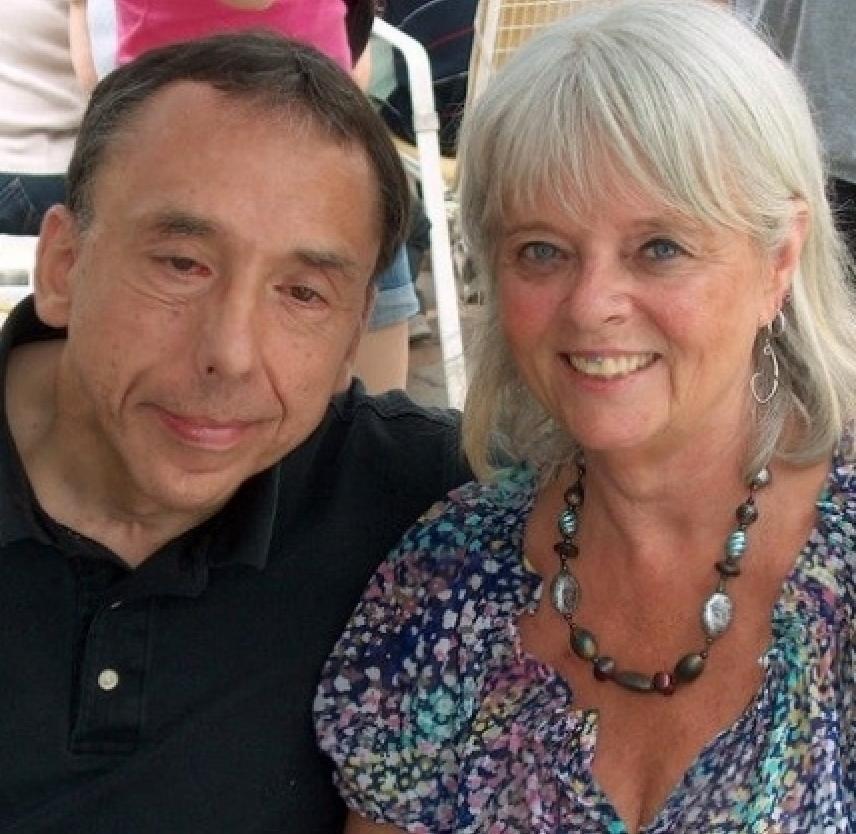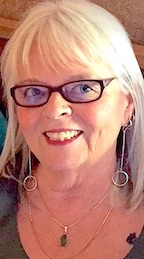
I’d never heard of “brain injury.” My life with my husband, David, was progressing down a neat path. We enjoyed our weekend walks in the park and our date-nights. We were getting used to the freedoms of our empty nest. Then life as we knew it ended. David had a traumatic brain injury. This event threw us onto a new and crooked life-path.
If you know anyone with a brain injury, you probably know it has changed almost everything in his or her life. But, did you know it also changes the lives of close family members, especially the life of the primary caregiver?
Because I was David’s caregiver, my life turned inside out. Roles were instantly changed. In fact, all roles fell on me for a long time. My world revolved around David’s every need, care, and whim. I gladly gave him my attention day and night. My purpose was to help him recover as much as his brain allowed.
The path of brain injury is a lonely one, not only for the survivor, but also for the caregiver. Often family and friends, who gratefully were available during the initial event, return to their lives. It’s expected. But, their absence and support often leave the survivor and the caregiver with feelings of loneliness and abandonment. Those feelings can lead to desperation, and even to depression.
For years after David’s brain injury, I felt alone. I didn’t even have my partner to offer support to me. He was a brain-injury mess! I looked for books about brain injury and found only a few. I devoured them. I searched the web for anything I could relate to about brain injury. There wasn’t much, not in 2005 when I needed help the most.
A few years later, I joined Facebook, with its millions of members. How I found the brain-injury sites (all 26 that I belong to), I don’t know, but I’m glad that I did. I found huge communities of survivors and caregivers. They talked about their injuries or the injuries of their loved ones. They passed on information, offered suggestions and advice as to what worked for them, and shared their stories. And, I shared mine too.
Sharing my story acted as a catharsis for me. Knowing that there was someone available to talk with at any time day or night was a relief. I’ve met so many kind and caring friends on social-media, and, though I’ve rarely met them in person, some have become very dear friends. When I understood that there were people living with many of the same challenges that I was living with, my feelings of loneliness lessened.
After I realized that sharing my story helped me, I set out to help others. I wrote a memoir. I also created a blog that encourages survivors and caregivers to share their stories. I designed a template of twenty questions for each group to complete. I then publish their interviews along with any photos on my blog, Surviving Traumatic Brain Injury. The blog provides a platform for survivors or caregivers to have a voice and to share their stories. It helps them, and it helps the thousands of folks who visit my site to read these stories. It helps us all to know we are not alone.
David and I have come a long way since David’s brain injury in 2005. The web offers so much to survivors and caregivers. Others have created blogs or websites. There are podcasts and YouTube videos to be viewed. If you have a keyboard and one good working finger, you can search the Internet and find information to help you. You can join social-media and connect with other survivors or caregivers. You do not have to be alone with brain injury. Open up! Share! It’s time! It really can help.
About the Author
Donna O’Donnell Figurski is a wife, mother, and granny. She is a teacher, playwright, actor, director, writer, picture-book reviewer, and photographer.Donna spends nearly every day writing a blog, called “Surviving Traumatic Brain Injury,” and preparing for her radio show, “Another Fork in the Road,” which airs on the Brain Injury Radio Network. Donna’s memoir, Prisoners Without Bars: A CAREGIVER’S TALE was published on November 1, 2018.
You can follow Donna on Facebook, Twitter, Linked In, and Pinterest.


Comments (6)
Please remember, we are not able to give medical or legal advice. If you have medical concerns, please consult your doctor. All posted comments are the views and opinions of the poster only.
JR replied on Permalink
It’s been a long road for us as well. The anoxic brain injury my wife sufffered in October 2014 seems a lifetime ago.
I take a lonely pride in thinking about the new life we’ve built back up. But it’s been hard. As we all know that complete loss of your confidant, your co-decision maker is rough. I don’t even want to think about the whole “intimacy” issue..:
Thank you for what you have shared.
Donna O'Donnell... replied on Permalink
JR, I appreciate your comments and your insight on your journey. It is a new path we walk after brain injury. With each step, a new world opens up. I wish you well.
Donna O'Donnell Figurski
"Prisoners without Bars: A Caregiver's Tale" (coming November 2018)
survivingtraumaticbraininjury.com
Christopher Jay replied on Permalink
Yay Donna!!!!!!! This is quality and integrity in publishing and helpful to survivors, along with David Grant's articles, and all of those that know and are predominantly altruistic! I thank you!
Donna O'Donnell... replied on Permalink
Christopher Jay, thank you so much for reading my article and your enthusiastic response. I hope my words will help others.
Donna O'Donnell Figurski
"Prisoners without Bars: A Caregiver's Tale" (coming November 2018)
survivingtraumaticbraininjury.come
Michèle replied on Permalink
Life changed drastically after husbands TBI July 2014. Loneliness is heart breaking.
Anonymous replied on Permalink
Michèle,
Yes, brain injury does cause life to change drastically. What was once familiar is lost. We must redefine our lives and grasp the best it offers. My husband and I find that humor helps. Thanks for your comment and I hope that you will find happiness.
Donna O'Donnell Figurski
"Prisoners without Bars: A Caregiver's Tale" (coming November 2018)
survivingtraumaticbraininjury.com